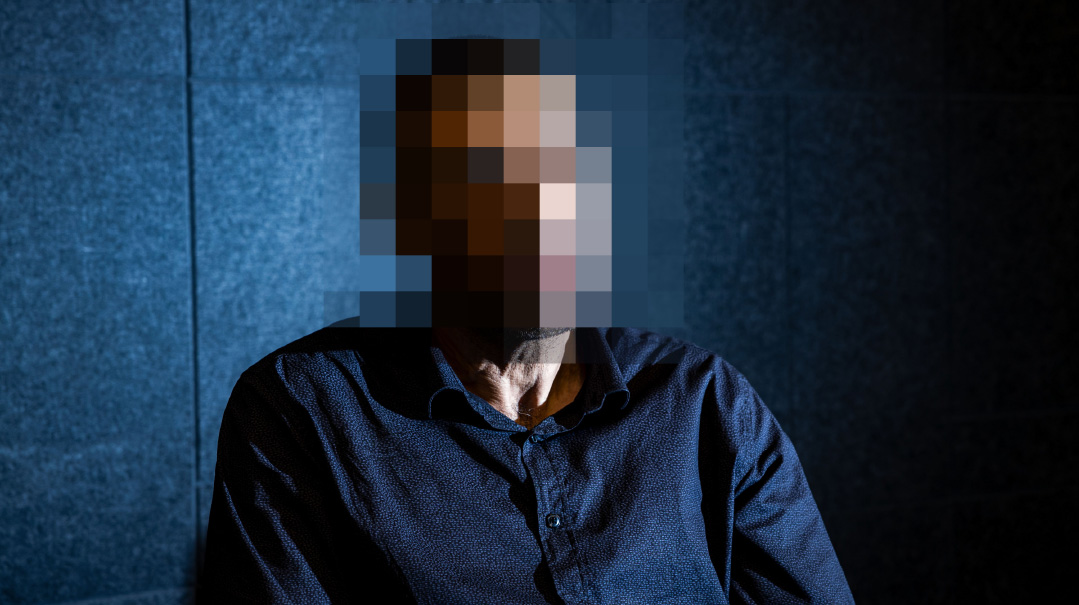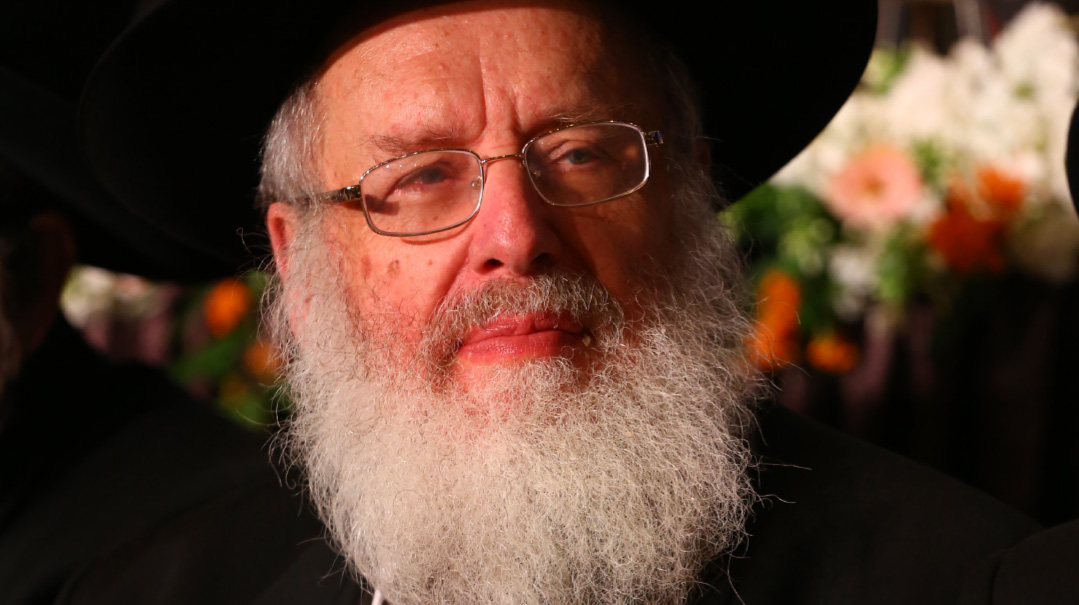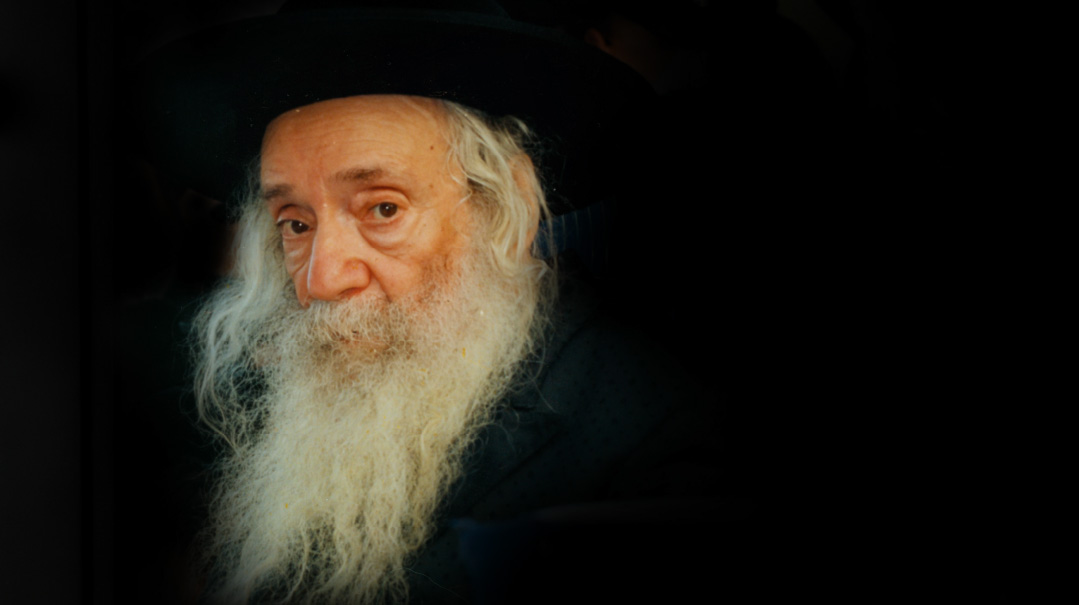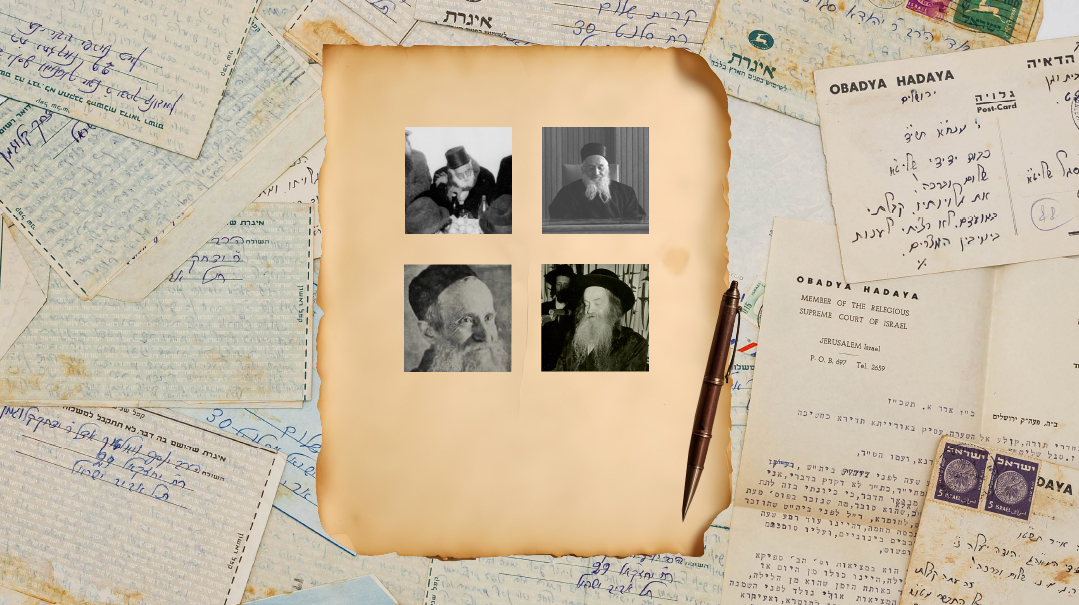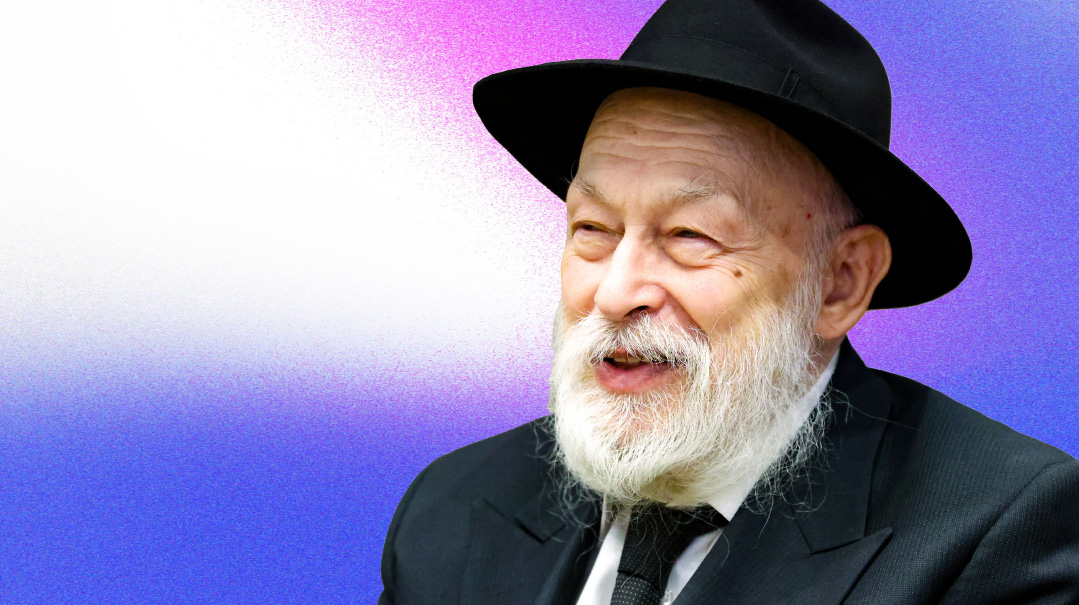Ever the Diplomat

Tom Nides has brought a human touch and open mind to the ambassador’s office in Jerusalem
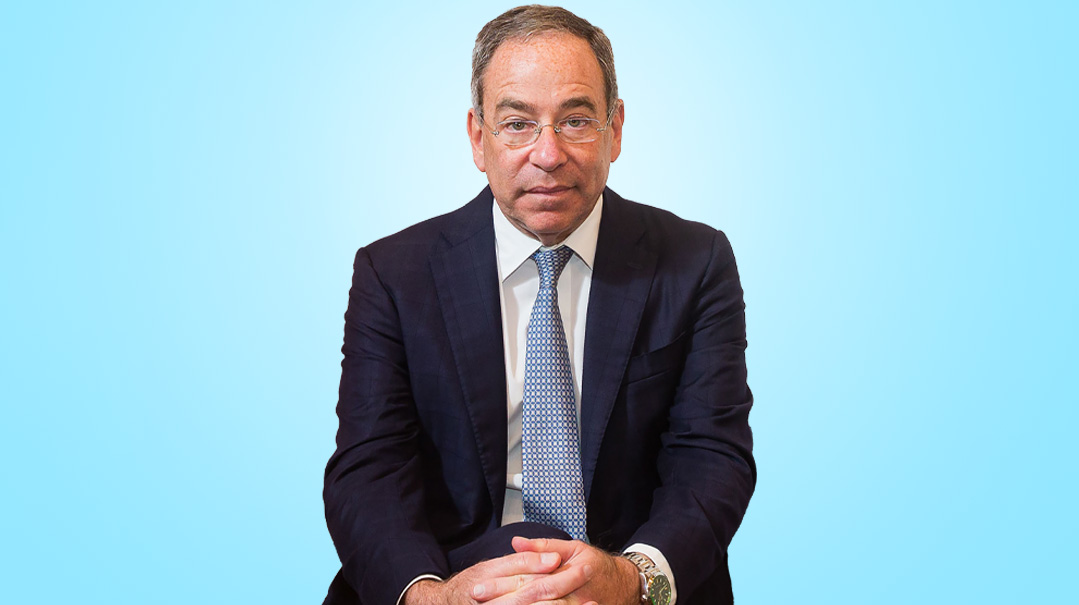
Gedalia Guttentag with reporting by Yisrael Yoskovitch
Ambassador Tom Nides was busy with meetings one Sunday morning a few weeks ago when his personal phone rang.
On the screen flashed a name that until recently would have merited an immediate response from Israel’s prime minister himself.
“Yanky Kanievsky” read the display. Rav Chaim’s well-connected grandson had a last-minute request for the American diplomat.
“Tom, we’re giving out 4,000 food parcels in Bnei Brak today — can you come and pack some boxes?”
Taken aback by the 11th-hour timing, Nides responded: “You do know that my schedule is arranged weeks in advance, don’t you?”
But Yanky, as he’s widely known, was having none of it. He produced his trump card.
“It would have meant a lot to my grandfather,” he said.
That, indeed, clinched the deal. Tom Nides picks up an enlarged photo of his own meeting with the gadol, which rests in the corner of his office at the United States embassy in Jerusalem.
“I told my staff, ‘Clear my schedule — we’re going to Bnei Brak to pack boxes.’ ”
Nides is still chuckling over the episode a day later when we sit down for a pre-Rosh Hashanah interview, but as becomes clear, the anecdote is more than mere opening gambit. That’s because Tom Nides is convivial, he exudes a certain empathy, and seems genuinely curious about people — notably the exotica of the chareidi world.
“I’ve gone to Bnei Brak many times now to learn about the chareidi community,” he says. “I’ve met many of the rabbinic leaders, and while I don’t understand everything, I see the importance of family, tradition, and studying.”
Over the last year, he’s parlayed those qualities into an ambassadorial style — part diplomatic, part learning process — that involves engagement across Israeli society.
The Jewish ambassador has become a notable fixture at that saddest of Jewish events — the shivah. Through a terror-soaked year, Nides has visited 15 shivah houses, turning up to comfort families up and down Israel.
“I sat with the families after the Elad terror attack, and I went to a Druze family in Nazareth, where I saw firsthand how terror affects everyone.”
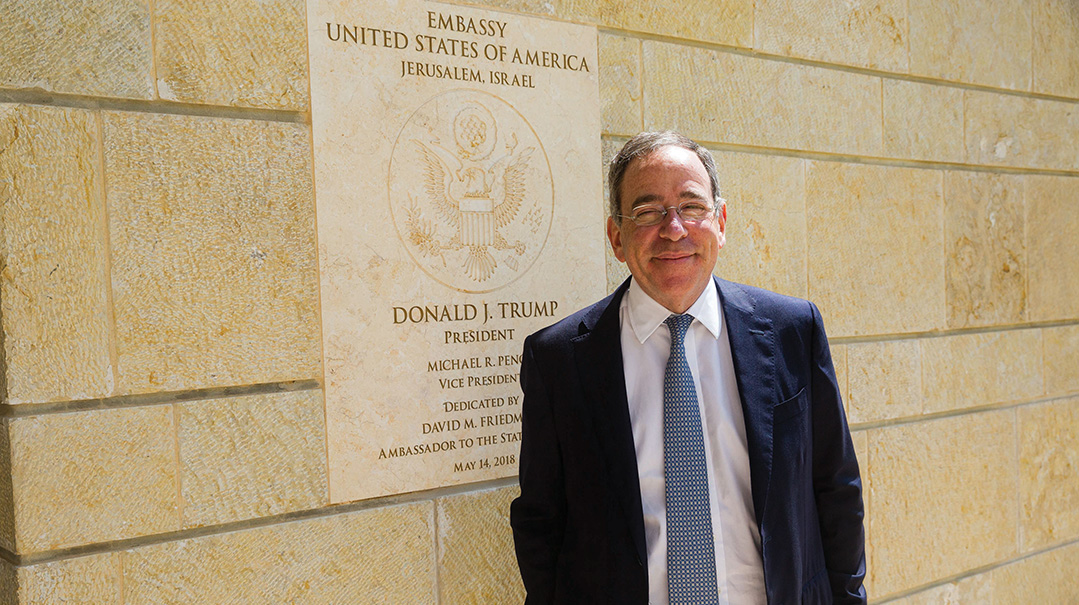
Nides posing next to the historic embassy sign honoring his boss’s political nemesis
That empathy has played well with Israelis. More controversially for many on the country’s right, Nides has broken with his Trump-era predecessor, Ambassador David Friedman, making outreach to the Palestinians a priority.
That tilt was obvious when Shireen Abu Akleh, a Palestinian-American journalist covering a counter-terror operation in Jenin, was shot in May, under unclear circumstances. A State Department report pre-judged an Israeli investigation, saying that it was likely that the Al-Jazeera reporter had been killed by an IDF bullet.
The US embassy followed up with a call for a review of Israel’s rules of engagement, the public nature of which carried overtones of a dressing down.
But inevitably, Tom Nides deals as much with what lies over the horizon — Iran — as with the Palestinian-Israeli conflict that plays out in sight of his office windows.
And even as the Biden administration seeks to bring back the Obama-era Iran Deal from the dead — against an Israeli consensus that the agreement is weak — Nides is adamant that this time around, Israel won’t be left out in the cold.
“Every option is on the table,” he says, reiterating the administration’s position on military action. “America will never bind Israel’s hands when it needs to act, even after a deal.”
These are Obama-era slogans rewarmed for the post-Trump epoch, with a hint of the third way that Biden has carved out on Israel.
As Tom Nides wraps up his first year in the embassy that bears the name of his boss’s nemesis Donald Trump, the former investment banker has brought a surprisingly personal touch to the job.
It’s also clear that for the new occupant of “David Friedman’s office,” as Nides jokingly calls his workspace, what’s past is prologue in the altneuland of America’s Israel policy.
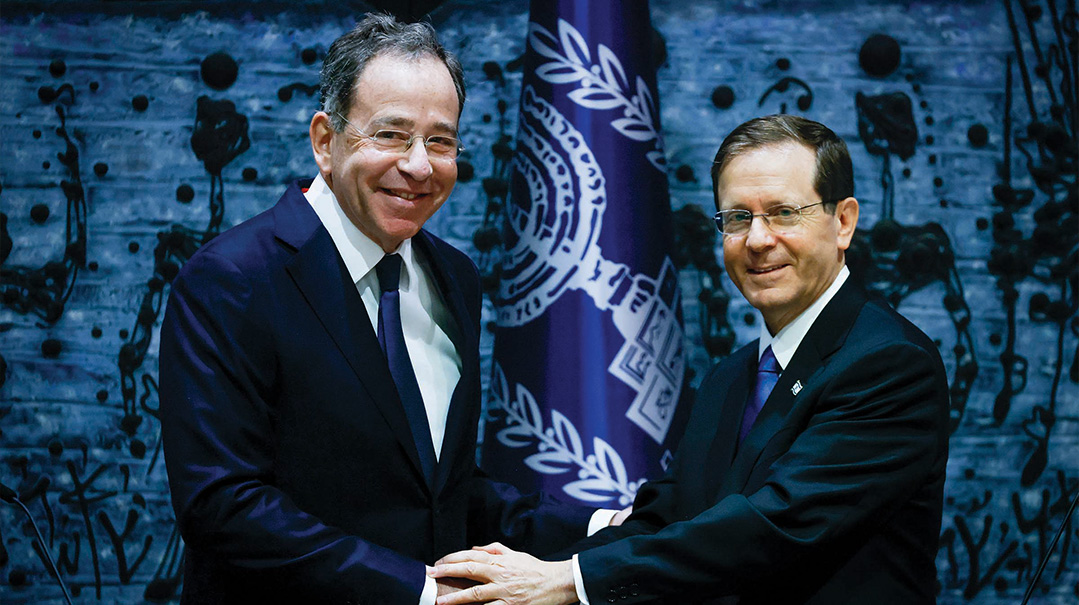
Nides presenting his credentials to President Herzog
Giving Back
A framed copy of Tom Nides’ local newspaper — the Duluth News Tribune — sitting on the office windowsill betrays the ambassador’s origin in small-town America.
Born in 1961 in Duluth, Minnesota, a Midwest port city, as one of eight siblings, the future ambassador’s parents were active in the local Jewish community. Tom’s father Arnold was a president of the Federation and the local Reform temple, and mother Shirley headed the branch of Hadassah.
“We were cultural Jews, not religious ones, but being Jewish was in our bones,” Nides says. “I went to the Temple for the High Holidays and I was bar-mitzvahed, and the first time that I came to Israel was at 14 years old, when I climbed Masada and was turned on by the idea of being a Jew.”
That typically mid-century secular Jewish experience is what gives Nides his sincere if bromide-laden worldview.
“I’m a cultural Jewish guy, which means giving back, kindness, and taking care of other people. That’s what I tried to do in the private sector, using the money that I made to help others. And obviously in government I try to do the same thing.”
Nides’ twin career in finance and government is testament both to his native ability and the kind of symbiotic relationship between public and private sectors common in Washington.
An early interest in politics saw a teenage Nides invite then–vice president Walter Mondale to speak at Duluth East High School’s graduation. Post-college, Nides cut his teeth on political campaigns, serving as Midwest field director for Mondale’s 1984 presidential run, before going on to spend time as a congressional aide.
Nides’ work on the NAFTA free-trade agreement — the ultimate poster-child for the Washington liberal consensus — under the Clinton administration was followed by an intermittent career in finance, taking in federal mortgage provider Fannie Mae, plus stints at Credit Suisse and Morgan Stanley.
His wife’s position as an executive at CNN is more evidence of the insider circles that Nides mixes in. (That relationship, plus Nides’s evident royalism, is the reason that throughout our interview, the flatscreen on the wall is playing CNN’s coverage of Queen Elizabeth’s funeral).
From 2010, Nides was back in government, serving as deputy secretary of state for management and resources under the Obama administration. Declining a role in Hillary Clinton’s ill-fated 2016 presidential campaign, he joined Team Biden in 2021 as the president’s nominee for ambassador.
“It’s rare for someone to be as fortunate as I have been to get to work at the top of government and the private sector,” Nides reflects. “It’s an enormous honor to be able to use a combination of both my government skills and my business skills as ambassador.”
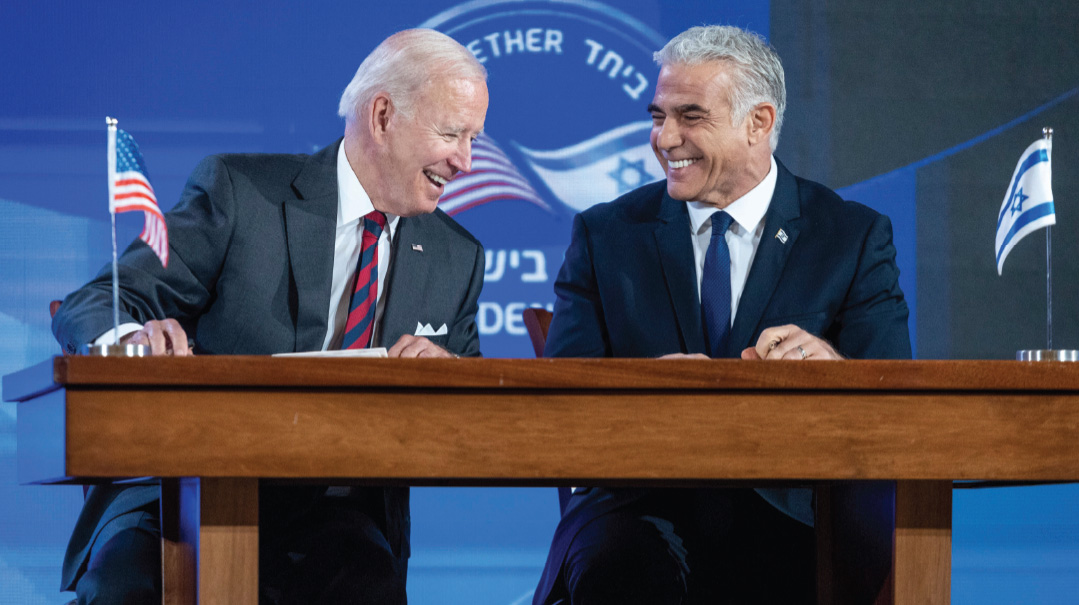
(Photo: AP images) Biden’s an old friend, but will younger Democrats stay with Israel?
Americans Abroad
The strict security protocols that govern the Jerusalem embassy prevent us from photographing the black-and-white portraits of previous ambassadors that line the entranceway to Nides’s office, but one thing — a peculiarity of the America-Israel relationship — is clear.
Unlike most other diplomatic postings, where the ambassador needn’t conform to the host country’s traditions, it’s now almost a given that America’s Israel ambassador is Jewish — the question is simply which flavor. Successive ambassadors now seem to indicate which part of the US Jewish community is currently close to the White House.
It was the colorful Philadelphia-born Warder Cresson — Tom Nides’s first diplomatic forebear — who began the tradition of Jews in the ambassador’s residence. Cresson arrived in Jerusalem in 1844 as the first United States consul to the Holy Land, before converting to Judaism as Michael Boaz Yisrael ben Avraham.
After Israel’s establishment, diplomats with names like Macdonald, Barbour, and Keating were the norm. But things changed (or reverted to the Cresson model) this century, when a string of Jews got the job: first Martin Indyk, then Dan Kurtzer, and then Dan Shapiro in 2011, followed by David Friedman, Nides’s immediate predecessor.
Tom Nides is eager to stress the continuity between his Orthodox predecessor David Friedman and himself.
“My first week here, I called David. I’ve had lunch with him multiple times, and have enormous respect for him,” Nides says. “David and I both care deeply about maintaining Israel as a democratic Jewish state. We may have differences in how we maintain that right, or what we emphasize, seeing as I lean into helping the Palestinian people more than David’s view, and we have different views on settlement growth, but we’re both committed to the security of the State of Israel.”
Collegiality aside, the gap between Trump’s and Biden’s respective envoys is a yawning chasm both in word and deed.
As the face of Donald Trump’s new Israel policy, Friedman pushed for the administration to defund UNWRA, the UN agency ostensibly dedicated to helping Palestinians, but that has been accused of perpetuating the refugee problem.
“The United States has thrown more than $10 billion in humanitarian aid to the Palestinians,” Friedman said in 2018, “without bringing the region closer to peace even by a millimeter.”
Contrast that with Nides’s frequent support for the Palestinian cause, couched in the language of democracy and social justice.
“Maintaining the democratic Jewish state means making sure that we’re taking care of the Palestinian people and not losing sight of the two-state solution,” he says. “You can be pro-Israel and pro-Palestinian. When I wake up and try to help Palestinians with education and health, I’m not making a political statement. It’s a humanitarian question.”
While an Israeli consensus has long advocated working to improve economic conditions for ordinary Palestinians for reasons of humanity and foreign policy, in today’s Democratic Party, whose leader Nides represents, the pro-Israel part of the equation is in retreat.
Democrats’ increasingly jaundiced view of Israel extends far beyond the hatred peddled by members of the far-left Squad such as Rashida Tlaib and Ilhan Omar.
In May this year, while Israel was under heavy rocket attack from Gaza, 25 House Democrats signed a letter calling on Secretary of State Antony Blinken to condemn the evictions of Palestinians from homes in Jerusalem’s Sheikh Jarrah neighborhood that stood on Jewish-owned land.
Ambassador Nides, though, rejects the assertion that Israel’s cause is falling out of favor in the Democratic Party.
“This idea that somehow Israel has become more partisan is ridiculous,” he responds. “Look at the vote to fund the Iron Dome — I think we lost just seven votes in the House of Representatives. And in Joe Biden, we have a Democratic president who came here last month ago and said, ‘You do not need to be a Jew to be a Zionist.’
“That could have come from a Republican. It could come from a Democrat. It comes from anyone who cares about Israel.”
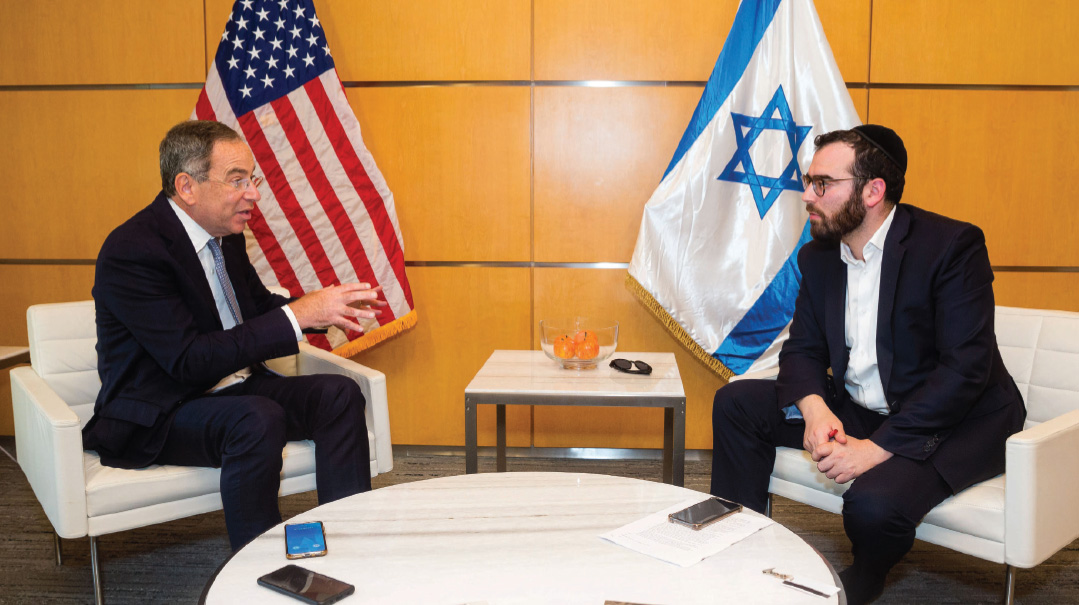
“Welcome to David Friedman’s office” Mishpacha’s Gedalia Guttentag with Tom Nides
Left Behind
Those are brave words, but America’s ambassador can read the runes, and he’s worried about the shape of tomorrow’s Democratic Party.
As a proud Reform Jew who’s a staunch Israel supporter, Nides will be aware of the sad reality that some of the fiercest anti-Israel rhetoric now comes from the ranks of the heterodox Jewish movements’ young guard.
Exhibit A in that growing trend was the May 2021 open letter signed by 100 students at the various non-Orthodox rabbinical seminaries accusing Israel of “violent suppression of human rights” — that, as Israel was under intense rocket fire from Gaza.
Asked whether he’s concerned by both trends, Nides responds, “I’m not worried by Israel support now, but in ten to twenty years’ time. It’s everyone’s job to educate the next generation.
“Listen,” he continues, “I think what’s going on in college campuses is a serious problem. I’ve said it over and over again to leaders of the Jewish community, from the heads of the Hillel to community leaders, that we need a Marshall Plan for college campuses in America.”
The problem, he contends, is one of messaging. “We have to help people understand why Israel exists, why this country is under threat all the time. We have to figure out what moves students, and we have to educate.”
The trouble with Nides’s proposed solution — “Israel working hard to be as inclusive as possible” — is that it involves Israelis doing the heavy lifting. That, when much of the problem is clearly one of young Jewish progressives who increasingly condition their support on Israel being fashioned in their image.

Photo: Flash 90
Going Ballistic
When the shaky video footage emerged of the death of a journalist in Jenin in early summer, the media onslaught wasn’t long in coming. Israel was enduring its worst terror wave in years; between March and May, 20 Israelis had been killed in small-scale attacks from Be’er Sheva to Bnei Brak and Elad.
By early May, Jenin — long a terror lair — was once again in Israeli security forces’ sights.
Wearing a ballistic helmet and blue bulletproof vest marked “Press,” Shireen Abu Akleh — a Palestinian-American who was a quarter-century veteran of Al-Jazeera — prepared to enter the city in the northern West Bank.
By the day’s end, her life was over and an international storm had broken out. The Palestinians accused Israel of intentionally killing the reporter.
The International Federation of Journalists declared that the killing was committed by “Israeli troops.” Amnesty International agreed that this was “a bloody reminder of the deadly system in which Israel locks Palestinians.” CNN said that Abu Akleh “was shot dead in a targeted attack by Israeli forces.”
The State Department didn’t go along with these calumnies, but released a statement saying that it was “likely” that the bullet had been fired by an IDF soldier.
Months later, the IDF itself agreed, at which point the State Department publicly called on the Israeli military to reconsider the rules of engagement that led to the incident. The intervention drew a sharp response from Israeli leaders, including the center-left prime minister, Yair Lapid.
Despite the widespread pushback from Israel’s politicians, Tom Nides says the administration’s handling of the issue — particularly the dressing-down of an ally — wasn’t overreach.
“I didn’t know Shireen, but she was an American citizen, and I went to the wake,” he says. “It’s a tragedy. No one wants to see any journalists get killed. We tried to coordinate a ballistics examination between the Palestinians and Israelis, and then made a determination last July that the IDF accidentally shot her.
“Why did we urge the IDF to look at its protocols? The United States has the most powerful military in the world, and we look at our rules of engagement all the time.”
Nides is right that governments convey messages to each other all the time. But did the choice of a public forum for urging change on an Israeli government fighting a terror wave not have a whiff of an administration eager to be seen doing the right thing, even at Israel’s expense?
It’s certainly true that the Biden administration is under strong pressure from senior members of its own party to hold Israel to account. Patrick Leahy, the longest-serving member of the Senate, recently warned that Israel faced the loss of military aid under a law he sponsored 25 years ago cutting weapons supplies to countries that abuse human rights, if it didn’t explain Abu Akleh’s death.
“In my heart of hearts, I don’t think that we mishandled this in any way,” Nides says. “She was an American citizen and a very famous journalist, and I think that we dealt with this with the utmost respect for her family, and for our ally.
“Like any great friend, you push back. That’s what the Israelis do to us on Iran — do we get offended?
The “great friends can disagree” rhetoric has a certain Obama-esque quality to it. It brings back memories of what many Israelis remember as an uncomfortable era when the leader of the free world used his bully pulpit to harangue Israel as the obstacle to Middle East peace.
But language apart, it’s clear that the Biden administration — and Nides by extension — is quietly charting a third way on Israel.
Not the unqualified support of the Trump era, nor the cold shoulder and “daylight” of the Obama years, but something more like Biden himself: a genuinely warm support for Israel, tempered by the realities of current Democratic politics.
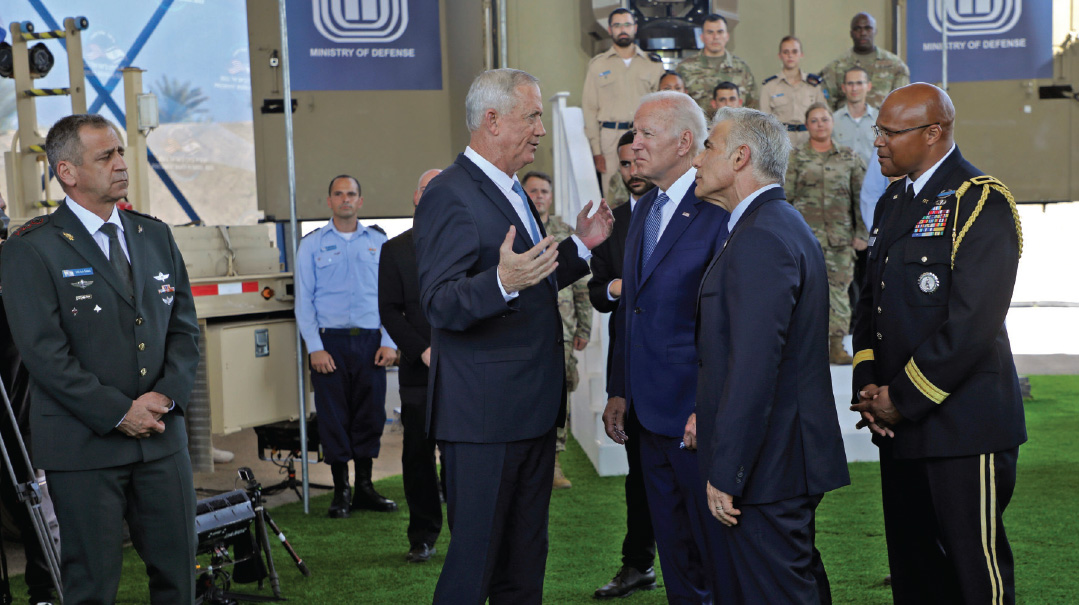
(Photo: AP images) IRON BEAM The new American funded anti-rocket laser system
Nuclear Option
It’s about a thousand miles from the American embassy in Jerusalem’s Arnona neighborhood to downtown Tehran. But for such a distant place, Tom Nides spends a lot of time dwelling on it.
That’s because since the Iranian Revolution in 1979, the shadow war between Israel and the ayatollahs has weighed on the US-Israel relationship.
The stealth jets that take off from the Negev, and, according to recent reports, have penetrated Iranian airspace, are American supplied. The billions in military aid that the US gives Israel go toward developing advanced missile defenses to neutralize Tehran’s ballistic arsenal, and fund the air force’s evolving plans to possibly attack Iran’s nuclear sites.
A few weeks ago, that long-running shadow war was back in the headlines with reports that America was about to sign on a new version of the JCPOA, as Obama’s Iran Deal is known. But now that threat seems to have passed, and talks of a breakthrough have faded.
Does that mean that the Biden team has belatedly accepted the Israeli position that the proposed deal was too weak to be effective in stopping the Iranian nuclear program? In answer, Nides reiterates a few administration positions.
“Joe Biden made it very clear he will not stand by and let the Iranians get a nuclear weapon,” he insists. “He’s also been very clear that he wants a diplomatic solution, but Iran is not close to meeting the conditions that Biden has set. It’ll be way after the November midterms — if ever — when the Iranians get back to us on this.”
It’s not clear whether it was the Americans or the Iranians — or both — who slammed on the brakes on the negotiations. But Nides mentions a sticking point on which Biden has dug in his heels.
“We’ve told Iran that we won’t remove the terrorist designation from their Revolutionary Guards to make a deal happen. That’s not in response to Israeli pressure, but because Joe Biden promised not to.”
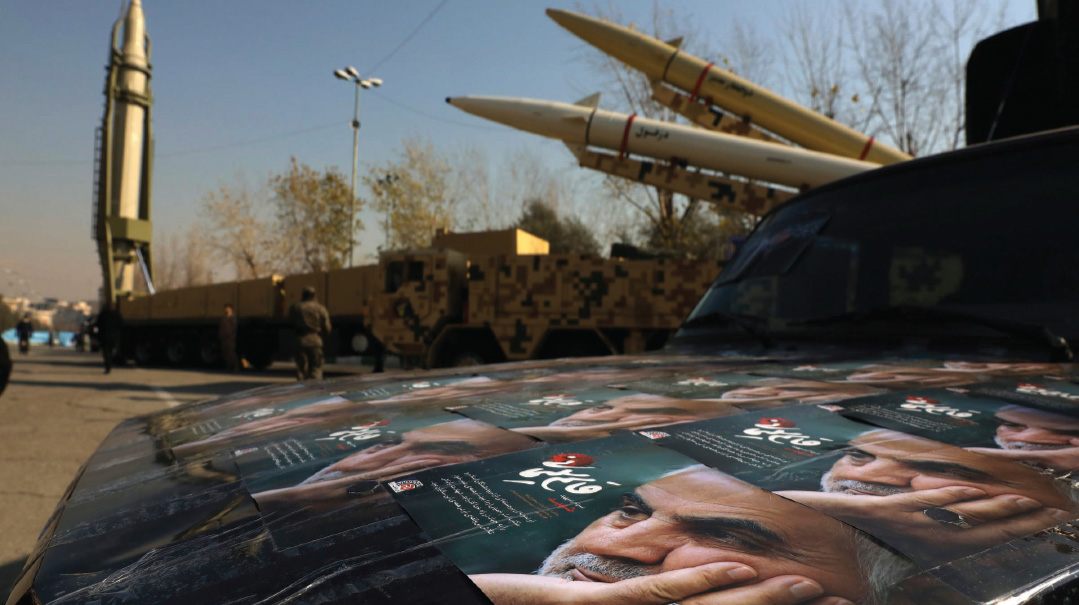
(Photo: AP images) Tehran Terror “The Iranians are going to get money for their proxies, but what is the alternative to this deal?”
Ring of Fire
If a deal with Iran fails, though, it won’t be because of this administration’s lack of trying.
And if a breakthrough happens, Israel will still be ringed by Hezbollah in Lebanon, Houthis in Yemen, and Shiite militants in Iraq — not to mention sundry Gaza terror groups — armed to the teeth with Iranian rocketry and ready to act as Tehran’s attack dog.
The difference will be that an emboldened Iran will be flush with cash and can double down on its efforts to challenge Israel by proxy. How do the Iran Deal’s boosters intend to help Israel on the day after?
“By keeping up the pressure on Iran and its proxies, separate from the nuclear deal,” answers Nides. “Iran is very, very close to breakout, to having enough material to build a bomb. Our argument has been that yes, it’s not a perfect deal. The Iranians are going to get money to sponsor their proxies. But what is the alternative? We have to buy time to enable other pressure and sanctions to work.”
So far, Nides’s term in office has been made easier by the emollient, non-confrontational approach adopted by the Bennett-Lapid duumvirate. Depending on whether Bibi is reelected come November, that could change if the veteran Israeli leader comes out fighting against the deal once again.
Whatever happens, though, Nides says that even post-deal, a Biden administration won’t stand in Israel’s way if it feels impelled to take military action.
“Joe Biden has said very clearly that he won’t tie Israel’s hands if it needs to defend itself against Iran or its proxies.”
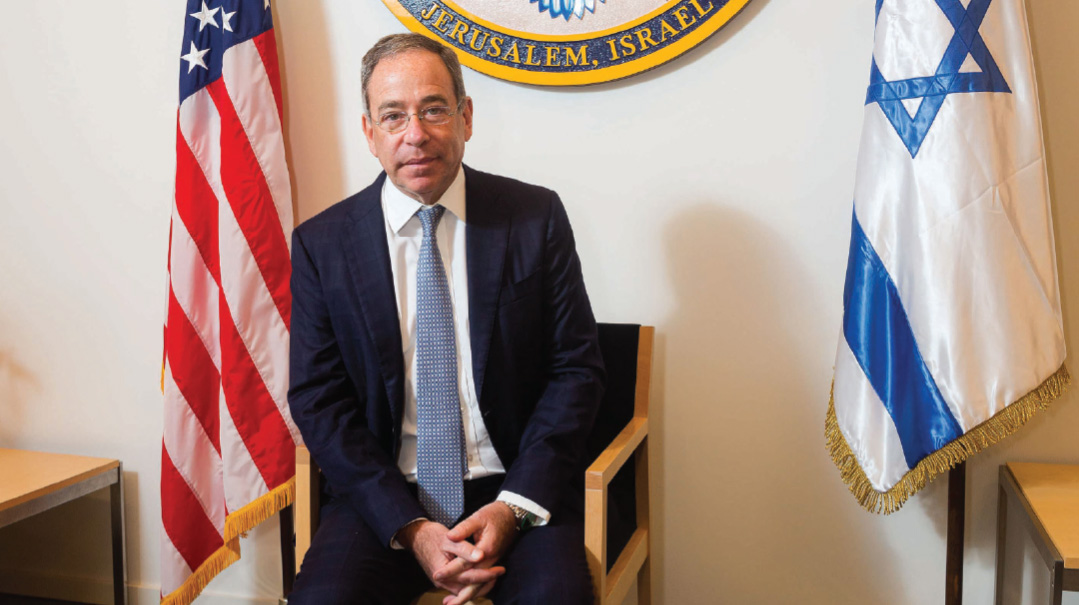
Ear to the Ground
Tom Nides respects many of his predecessors, and wishes that he had Dan Shapiro’s command of Hebrew. But the inability to converse like a sabra doesn’t seem to have stopped the ambassador from keeping his ear to the ground; he’s managed to talk to real people as well as politicos.
“It’s part of my job to get out of this fancy office to hear what average Israelis think,” he says.
Those trips to shivah houses, chareidi work facilities, defense exercises, Maccabi athletic games, and a myriad other engagements have taught Nides something that his previous postings in finance and government didn’t convey.
Perhaps it’s being raised in Duluth in a large, close-knit family that’s responsible for the humanity that Nides sees as an important part of his job. But his expression is genuine when he says that the primary lesson relates to dealing with people.
“It’s the little things that count,” says the man responsible for the big-ticket items on the Israel-American relationship.
“Being at a shivah, understanding what people are going through — at the end of the day it’s showing up that counts.”
(Originally featured in Mishpacha, Issue 931)
Oops! We could not locate your form.

